This Amsterdam queer techno night is revolutionizing dance floors one beat at a time.
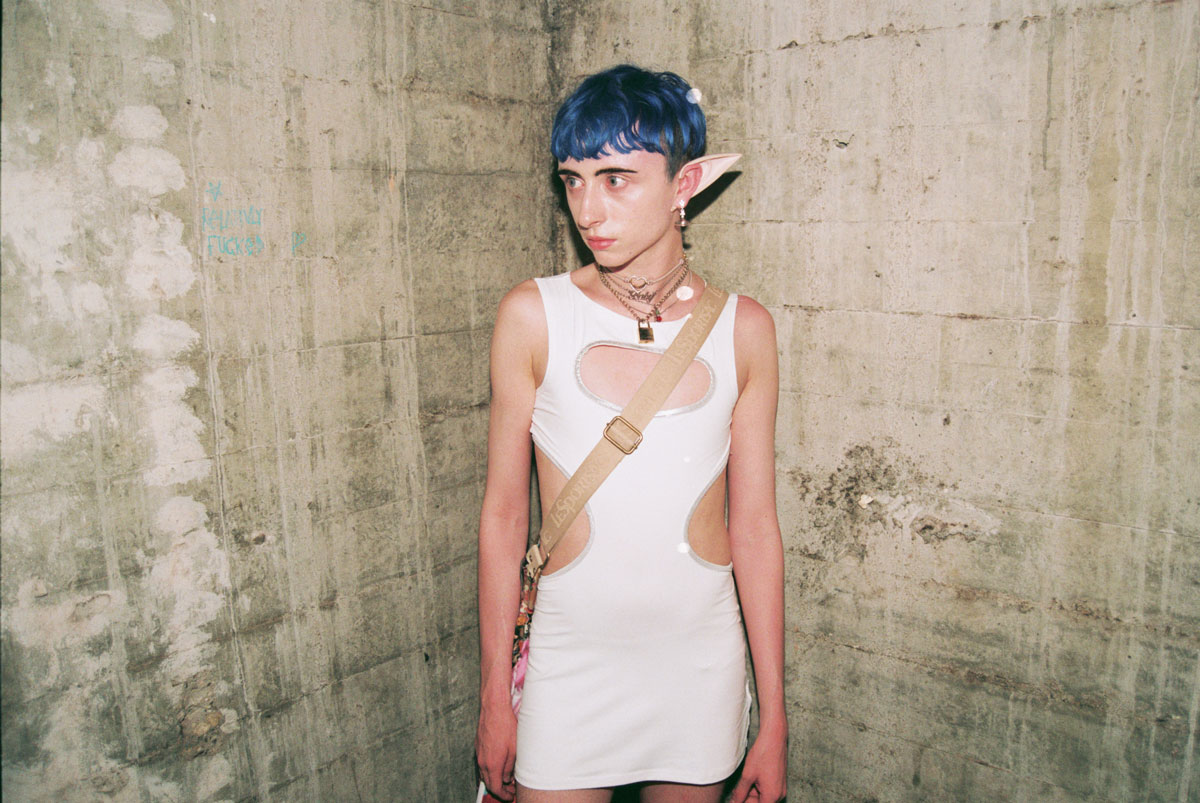
Music is, and always has been, one of our greatest vehicles to shape the way we view society and act within its confines. But in a world in which hate and distrust, intolerance and violence are all-too promoted by those up high, how is music continuing to take in this intolerant anger and counter it with positivity and protest? In our Rave Revolution series, we’ll be talking to some of the most frontier-pushing artists, tapping into progressive minds and providing a platform for those who are not only pushing for change within the industry itself but reimagining and remoulding the society in which it reverberates.
Getting the series off with a most invigorating stir is Spielraum—the Amsterdam queer techno night that brings a colourful community to a safer dance floor, pushing for inclusivity, freedom and a high-end music experience. Its founders, Sven Bijma, Diego Meijers and Thomas Vandewalle, are the trio that advance diversity and acceptance one music euphoria at a time. Glamcult sat down with Sven and Diego, eager to peek behind the scenes of a night that aims to truly revolutionize queer spaces.
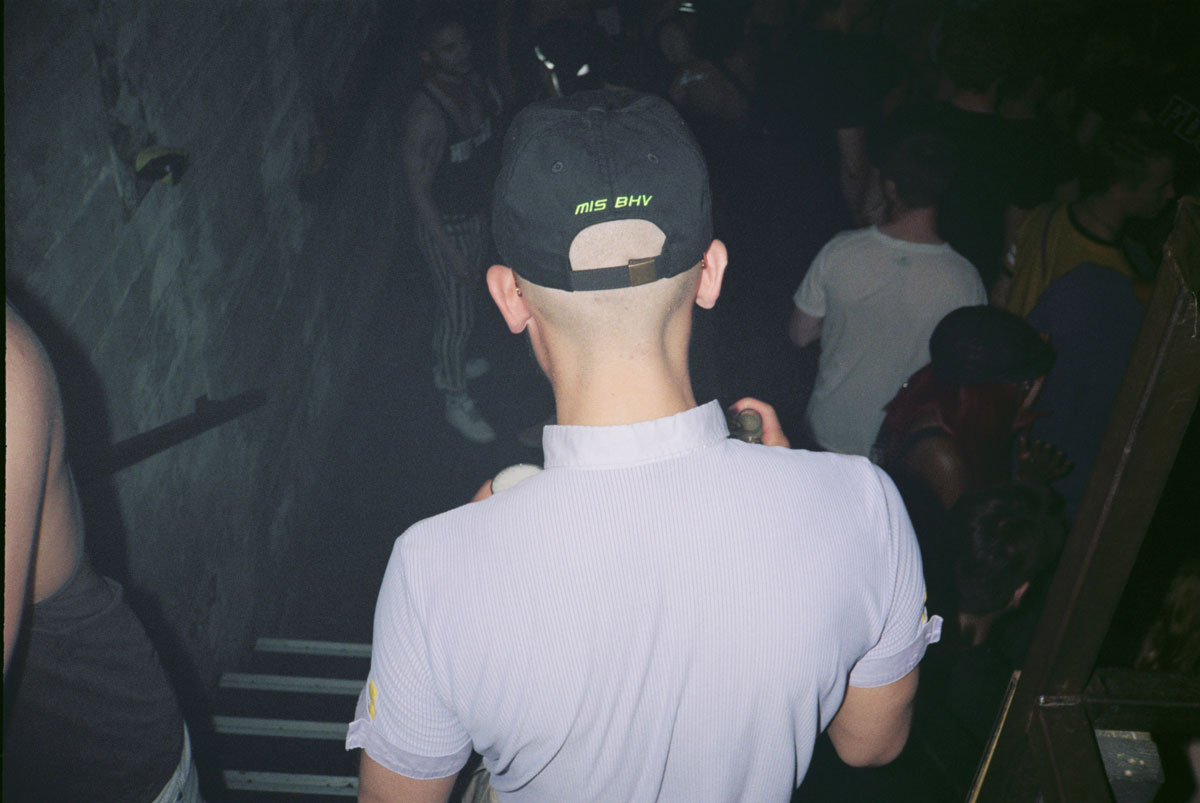
What pushed you to start Spielraum and organise the recurring party nights?
SB: We wanted to have a queer, inclusive space with a diverse crowd, and we were also missing a proper techno night in Amsterdam. We wished for a place you could go to, where the music is always good and the techno always high-quality.
DM: There was no party like this in Amsterdam for the queer scene.
SB: I also feel a little ashamed when I say this—though it’s important—but the reason why we wanted to do a party ourselves is that we were often annoyed or frustrated with how others were doing parties. We were just like, “We can do it better,”. I’m a bit uncomfortable because it can have an arrogant connotation if you say “I can do this better”, but I also think it’s a really natural motivation to start something.
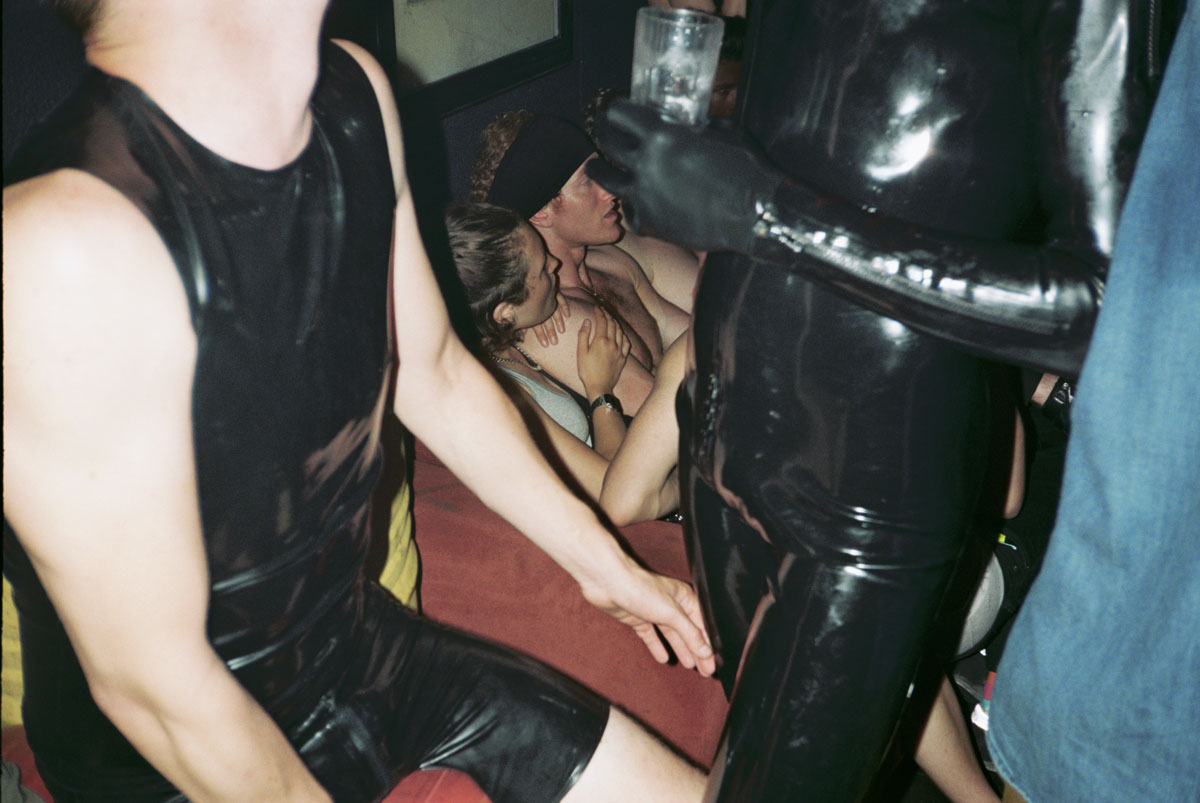
What goes into organising a night such as Spielraum?
SB: We work on Spielraum every day, really—it’s a lot of work. It’s not easy to run a party like this; you can’t just get away with hanging up pink flags and getting your local DJ to play a techno set. It’s more than that.
DM: We really do it together with the crowd, too. We get so much energy from them and they really feel a part of it.
SB: It’s so amazing that people really contribute to the party.
DM: It’s not just the organization of a party—it’s an entire community. That’s what really feels special—to have a party where the entire queer scene is together. That’s the big difference with a queer party at other places. It is also very important to note that we are not a sex party. While sex may happen at the party and it’s amazing to see people feel the freedom to do that if they feel like it and be open about it, we’re also aware that it does scare some people away and we don’t wish that. So, that’s why we don’t have a dark room, we don’t distribute condoms and other things like that.
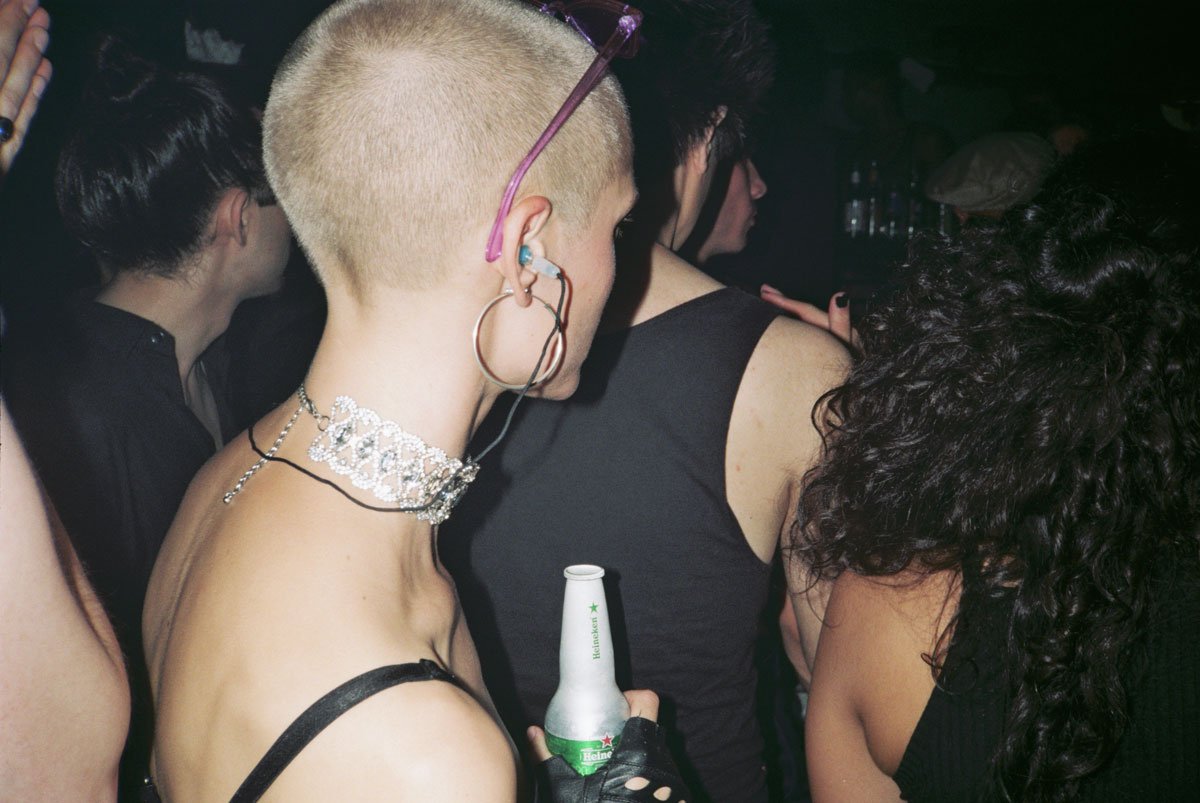
What influences your choice of DJs?
DM: Several things. We begin with the kind of techno we want to have—harder yet still very melodic. We also don’t want to only book big names to simply attract people, but we do want to sometimes book DJs that are known within the sphere of the scene. I also want to have DJs that aren’t that established or famous yet, but really good and upcoming.
SB: Because you don’t want to please your crowd too much—just a little bit. But, I think, in the end it would be very nice if we could book DJs that we discovered or saw playing somewhere else, and then introduce them through our party and create that same environment and atmosphere. But we can only do that once we establish a following.
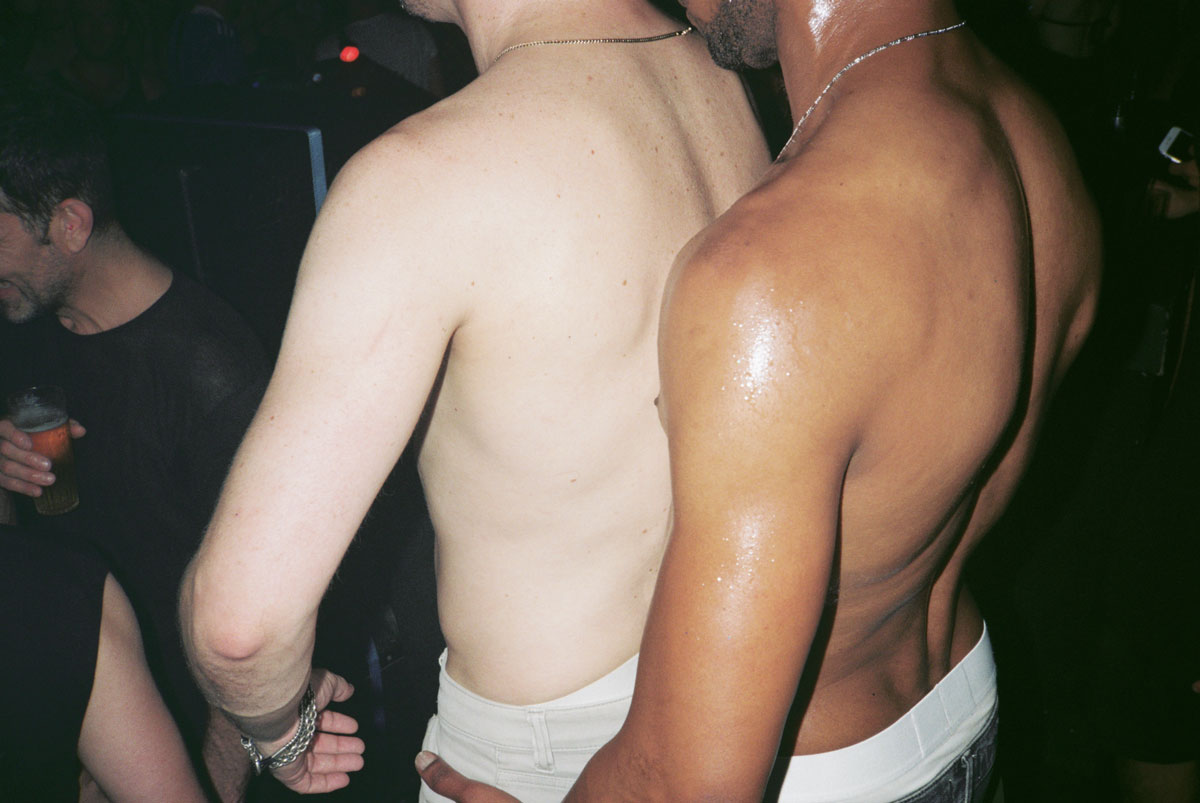
How inclusive do you find the electronic music scene in Amsterdam?
SB: When it comes to inclusivity, my main aggravation is that most events are run by straight people. They want to welcome queer people and make them feel open, but it’s a frustrating thing for me that these events are always hosted by straight people and we’re the ones ‘welcome’ on such nights, when it should be the other way around. I think it’s getting better—I mean, if you look at De School, it has become pretty queer. But there’s no queer club at the moment—there’s not one place for queers. We just go to parties where this main group stands front left and then you don’t really notice the other part of the crowd.
DM: At Shelter, it’s actually front right…
SB: It’s getting more mixed, but I’m a little afraid. Because there are a lot of places that really want to come across as open minded spaces—which is great—but it’s easy to say you’re open minded since it’s also hip, quite opportunistic and often just geared towards making money. We often question such motivations, to be honest.
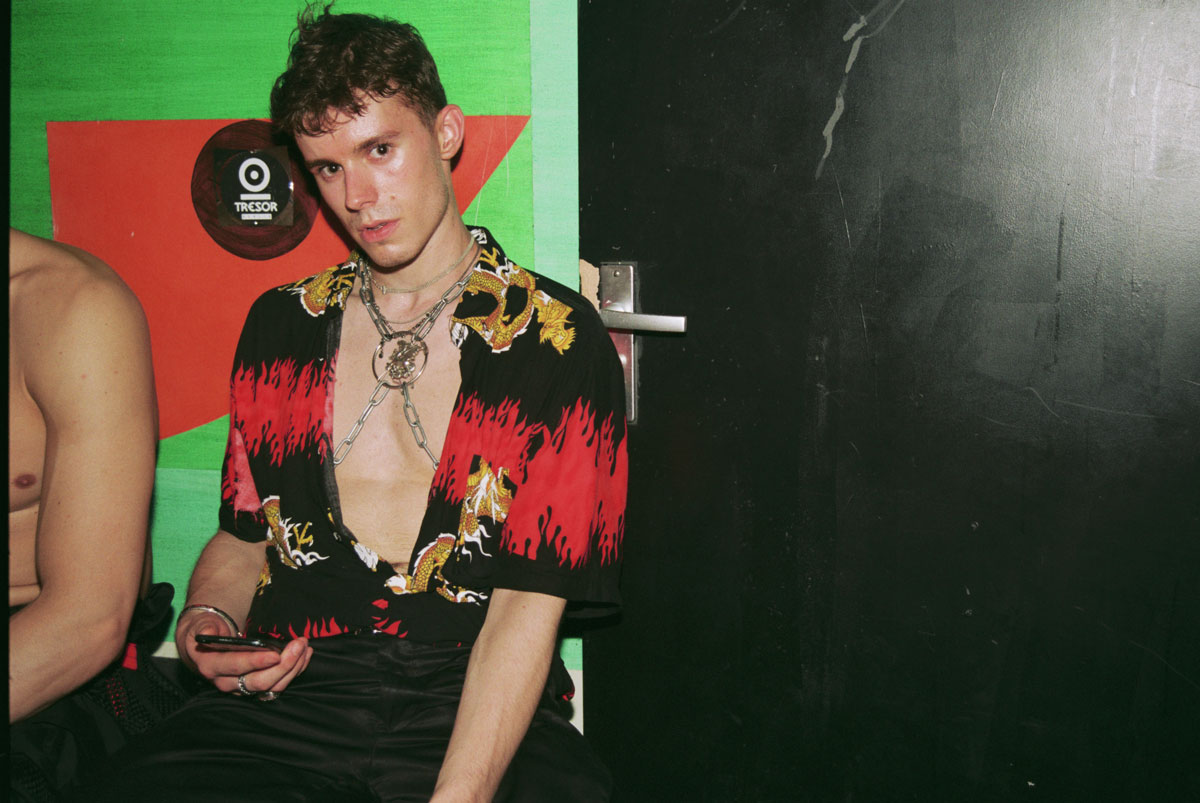
So what do you think could be done to overcome that, and how can nights like Spielraum push for change?
DM: Well, we just mentioned the fact that it’s mainly straight people who are organising these club nights, but I really think that, in the end, straight people, although they may still be queer, never truly know what that experience is like.
SB: Also, you can’t just book a DJ and say it’s a queer night—it’s doesn’t work like that. It’s really about creating an environment, getting the right people and reaching your crowd.
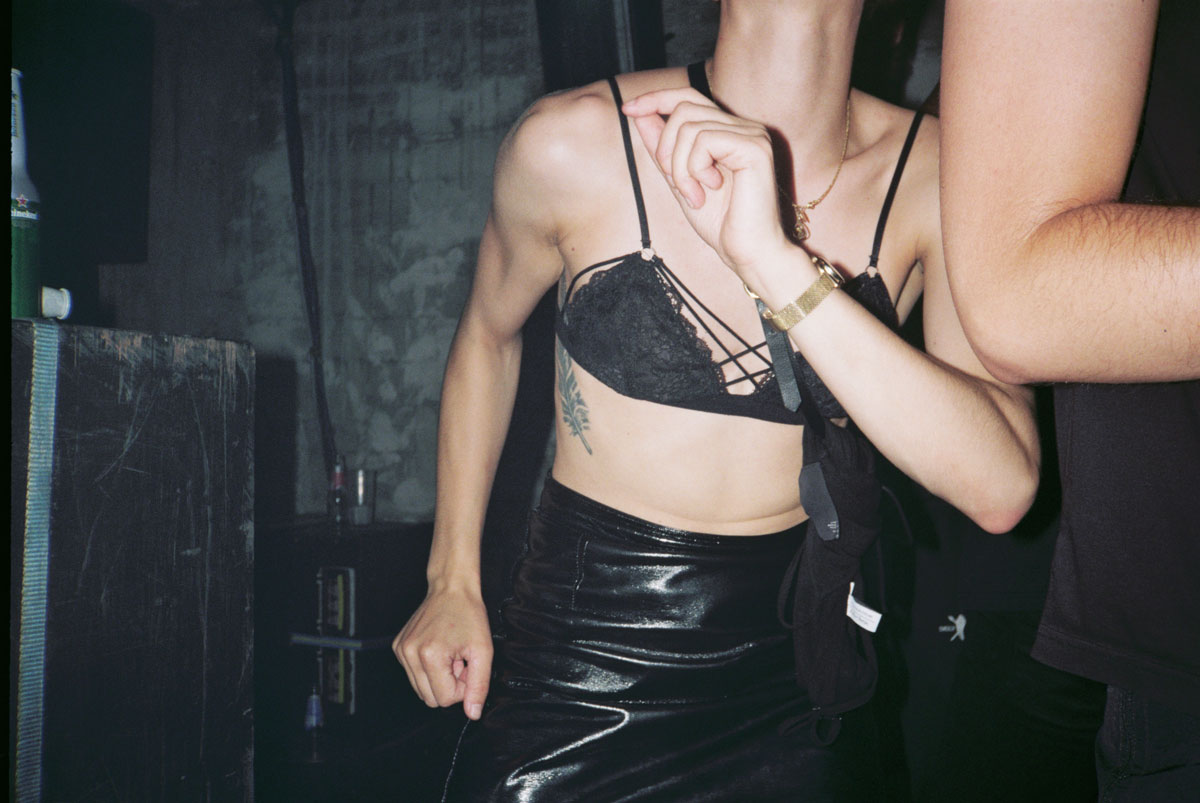
How can music be used as a vehicle to change the way we view and act within society?
SB: With our party, we aim to create a society that’s perfect to us. That’s why we try and book as many male as female DJs—it’s important that you have that balance, because you see a lot of parties and festivals where there are barely any female DJ playing. We also aim for a crowd that’s as diverse as possible—white, black, old, or young.
DM: Yes, when you’re at the party, we hope it feels like the ideal society—it’s really how the world should be. There’s no sexism, no racism. It’s just everyone together, being open with each other.
SB: I think that through music, some kind of euphoria is created, which you need every now and then—like the way a DJ builds up their set, and after the climax, you feel rewarded. I think that’s something that’s important for people to experience.
DM: We also really do it together. For this kind of harder techno music, you truly work towards an end together, you really motivate each other all the time to keep on dancing.
SB: For instance, in Tbilisi, they played that old House track, ‘The Age of Love’, which has a really slow build-up, and it moved everybody, and that’s something you can achieve through music only—that state of euphoria. The single way to experience this is in a crowd—something you can only reach through music.
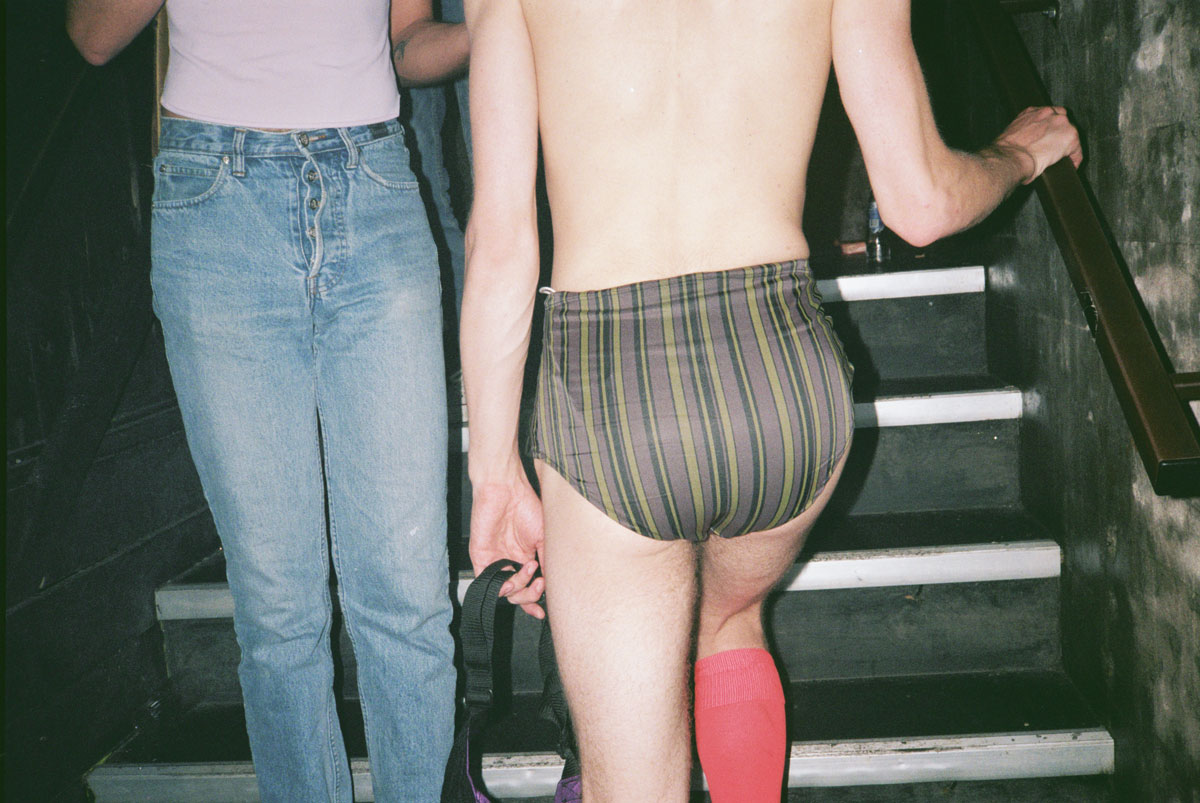
Words by Louise Goodger and Valkan Dechev
Photography by Sven Bijma
www.spielraum.nl